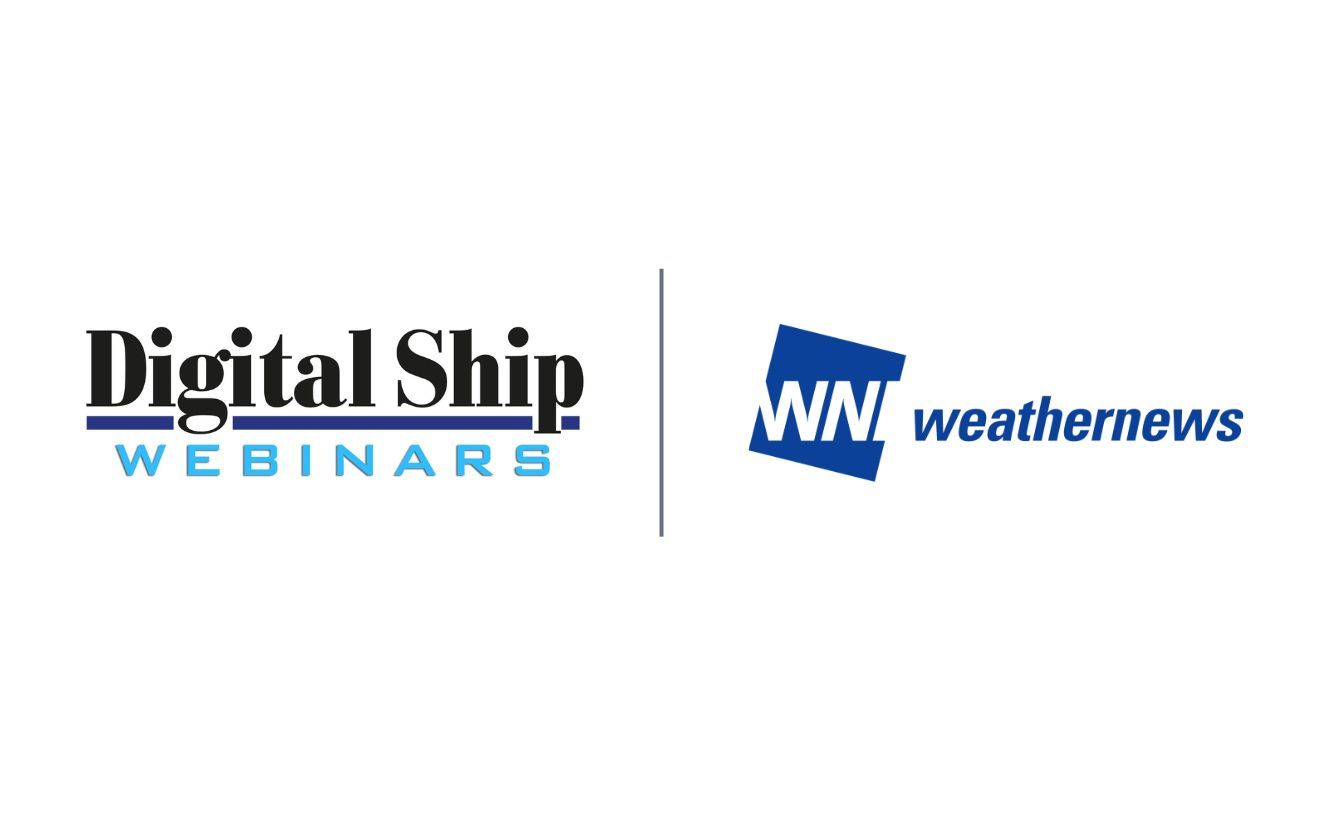Key Insights from Our Webinar on Historical Weather Data: 'Historical Data Promotes Deeper Insights at All Stages of Voyage Planning'
In a recent webinar hosted by Digital Ship, Weathernews delved into the significance of historical weather data in enhancing charterer-operator negotiations and improving vessel performance.

Accurate historical weather data is increasingly important in enhancing charterer-operator negotiations and improving vessel performance within the maritime industry. In a recent webinar hosted by The Digital Ship, Benjamin Fahrig, Post Voyage Analyst at Weathernews Inc., provided insights into how advanced weather data can facilitate informed decision-making in voyage planning, optimize fuel consumption, and assist in resolving weather-related claims.
During the session, key takeaways included the importance of data-driven decision-making, which allows operators to enhance efficiency and better predict voyage times and fuel usage. The comprehensive utilization of various historical data sources ensures robust and reliable analysis, providing critical evidence in weather-related disputes. Additionally, the use of accurate weather data strengthens negotiations between charterers and operators, enabling clear, data-backed insights that promote fair outcomes. This discussion emphasized how leveraging historical weather data, along with advanced processing methods such as cloud-based simulations, and improved satellite observations, can significantly improve operational outcomes in the maritime sector.
Interview with Benjamin Fahrig
To delve deeper into the insights shared during the webinar, we spoke with Benjamin Fahrig about the key takeaways and implications of using historical weather data in maritime operations.
Can you summarize the key takeaways from the webinar regarding the use of historical weather data?
Historical weather and vessel data promote deeper insights at all stages of voyage planning and analysis, from pre-fixture to after completion of the voyage/s. Historical data helps us understand how weather and sea conditions are behaving, it helps us anticipate weather and sea conditions that will be encountered in the future, and it enables us to both assess and predict vessel performance in various conditions.
How do you think the webinar went? What’s your impression of the overall discussion?
From my perspective, the webinar was a lot of fun. The topics that were discussed reflect many of the considerations that I use in my day-to-day work at Weathernews. I find this information immensely useful, and I hope that it was equally interesting for the audience.
Could you walk us through your preparations before the webinar?
We wanted to share information related to historical data that is both recent and relevant to ensure an informative and engaging presentation. Since Weathernews provides products and services to many, many customers, this meant identifying trends from use cases that could be used to build a presentation. Packaging this information into slides was perhaps the most challenging, though enjoyable, aspect of the preparations for the webinar.
What specific challenges do you believe historical weather data helps address for maritime operators?
To me, historical weather data can address numerous challenges faced by maritime operators. As we showed during the webinar, we can utilize historical data to resolve disputes, or even avoid disputes altogether. We can also use historical data to glean insights related to vessel performance, both past and future (anticipated). Historical data has the potential to provide numerous insights and to help parties maintain business relationships.
What did you think of the questions that were addressed to you after the webinar? Were there any that particularly stood out to you?
It was fun to receive questions after the presentation! My conclusion from the questions is that parties are looking for reliable, trustworthy information in the form of data and products. Questions about ocean current analyses, weather satellite observations, and the accuracy of vessel speed estimates, in addition to other questions, all indicated that parties are keenly interested in the topic of accurate, historical data.
How can charterers and operators implement the insights shared in the webinar to enhance their operations?
We believe that parties may implement such insights by maintaining an ongoing analysis of vessel performance, from pre-fixture, where performance must be estimated, through the end of the voyage, where past performance is assessed. Weathernews offers several products and services that help parties leverage historical data efficiently to meld with their daily operations, and to assist in the decision-making process.
Looking ahead, what trends do you foresee in the use of weather data within the maritime industry?
Weather data is going to be crucial for the maritime industry moving forward. Weather data will be, and is being, used for modeling and assessing vessel performance, to say nothing of the insights such data provides regarding the current condition of our planet. And, as we continue to see heavier conditions around the world, weather data may be critical to finding additional means for assessing vessel performance, outside of the traditional “good weather method”.
Conclusion
Historical weather data forms the bedrock upon which vessel performance may be calculated and assessed. Utilizing accurate historical weather data allows parties to engage in fruitful discussions related to vessel performance, ideally as a means for resolving, or avoiding, disputes. Such data will help parties understand how a vessel might be expected to perform along a certain trade, or how a performance assessment might have changed under different charter party-defined good weather thresholds. The packaging of accurate historical weather data in operationally efficient and practical ways will culminate in timely and increasingly confident decision-making by parties throughout the maritime industry.
For more insights from the webinar, a recording is available here.
For more information on how Weathernews can assist your operations with high-accuracy weather data, visit sea.weathernews.com.
Check us out at
- Oct 22 - Oct 24 • Milan, Italy
Enlit Europe

- Oct 24 - Oct 24 • New York, US
2024 Annual Conference and Marine Environment Protection Awards

- Nov 6 - Nov 7 • Montreal, Canada
Arctic Shipping Summit

- Oct 16 - Oct 16 • Galveston TX, US
US Nautical Institute Conference

- Oct 10 - Oct 10 • Athens, Greece
Digital Ship Athens (Autumn Forum)

- Oct 2nd - Oct 2nd • Limassol, Cyprus
1st CSN Mediterranean Energy Efficiency and Sustainability Conference

- Sep 23 - Sep 26 • London, UK
2nd WMO-IMO Symposium on Extreme Maritime Weather

- Sep 24 - Sep 26 • Hamburg, Germany
WindEnergy


Weathernews to Explore Historical Weather Data’s Role in Helping with Charterer-Operator Negotiations & Improving Vessel Performance
Weathernews will participate in a Digital Ship webinar to discuss historical weather data in improving maritime performance and resolving disputes between charterers and operators. This webinar will highlight how accurate weather data can support better decision-making, optimize fuel consumption, and enhance operational efficiency.
Read more